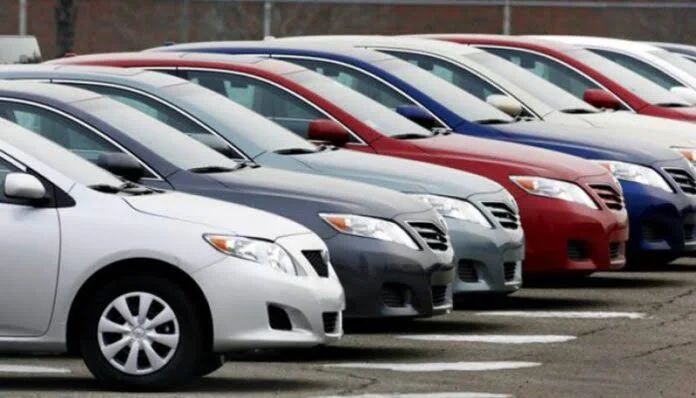
The affordability of cars for ordinary consumers in Pakistan has hit a new low, with reports indicating a staggering 40% decline in vehicle sales for the current financial year.
Industry insiders attribute this sharp drop in sales to various economic factors, including the depreciation of the Pakistani rupee against the dollar, skyrocketing inflation rates, and hefty tax burdens. These challenges have compounded the affordability crisis, making car ownership an increasingly distant dream for many prospective buyers.
As purchasing power diminishes, there’s a noticeable shift in consumer preferences, with a rising demand for imported vehicles and a corresponding decline in sales of locally manufactured cars.
Read: Petrol, Diesel Prices in Pakistan Likely to Drop from May 1
Furthermore, hopes for tax reductions on vehicles in the upcoming budget seem bleak, fueled by significant tax rate disparities between Pakistan and neighboring countries. While local vehicle taxes range from 35 to 45%, neighboring nations impose considerably lower tax rates of 15 to 20% on cars.
Despite efforts to promote alternative transportation modes like e-vehicles, progress remains sluggish. Although e-bike plants have been established, their demand and production remain subdued due to high prices.
Asim Ayaz, spokesperson for the Engineering Development Board, underscores the importance of a forensic audit of car imports to gain deeper insights into the automotive market dynamics.
Nearly 150,000 Afghans have returned from Pakistan and Iran this year, exacerbating a severe humanitarian…
In a significant development for bilateral relations, Pakistani Prime Minister Shehbaz Sharif recently engaged in…
In the immediate aftermath of the UK premiere for "Wuthering Heights," intriguing photographs of Princess…
Dubai’s prominent business figure Sultan Ahmed Bin Sulayem announced his resignation as chairman and CEO…
K-Electric (KE) announced on Friday the immediate elevation of Adeeb Ahmad as its interim Chief…
K-Electric’s board of directors announced on Friday the appointment of Adeeb Ahmad as the utility’s…
This website uses cookies.